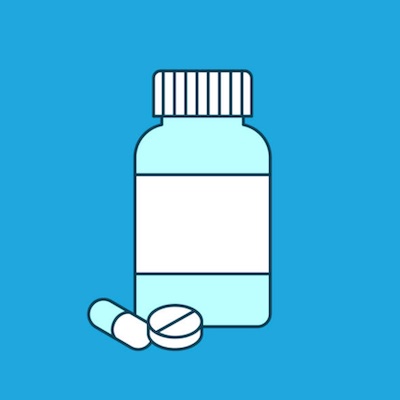Can an Oral Insulin Help Lower A1C?
By Matthew Garza
 Are you an adult with type 2 diabetes who is interested in trying oral insulin? If so, see if you’re eligible for this clinical trial studying how an oral insulin pill can lower A1C and fasting glucose levels.
Are you an adult with type 2 diabetes who is interested in trying oral insulin? If so, see if you’re eligible for this clinical trial studying how an oral insulin pill can lower A1C and fasting glucose levels.
Clinical Trials Identifier: NCT04754334
Trial name: A Phase 3 Study to Evaluate the Efficacy and Safety of ORMD-0801 in Subjects With Type 2 Diabetes Mellitus
Diabetes type: Type 2
Trial Sponsor: Oramed, Ltd.
Why does this trial matter?
This trial is one of two phase 3 clinical trials looking at Oramed’s new oral insulin therapy, currently called ORMD-0801. The first trial is no longer recruiting and some of the main results are expected as early as next year.
Oramed’s insulin pill could drastically change the diabetes medication landscape if these studies show positive results.
Oral insulin could provide people with diabetes an easier and potentially more convenient method for taking insulin. This may have positive effects toward helping people keep up with their medication routine – given that some people find injections painful or uncomfortable. In addition, research shows that some people experience stigma as a result of injecting insulin that prevents them from taking it in public or in front of others.
Because the insulin would be also absorbed through the gut and pass through the liver before entering the bloodstream – it might more closely resemble the body’s natural insulin delivery mechanism.
An oral insulin option has long evaded researchers, but ORMD-0801 could be close to changing that. One of the world’s premier diabetes experts, Dr. Anne Peters, a professor of medicine at the Keck School of Medicine of USC and director of the USC Clinical Diabetes Programs, recently joined Oramed’s Scientific Advisory Board. Seeing someone with her credibility in the diabetes community advising Oramed to bring this insulin option to people with diabetes is encouraging.
What is the aim of this trial?
This study will evaluate whether ORMD-0801 can lower participants’ A1C and fasting glucose levels, compared to a placebo.
Researchers want to enroll around 450 participants in this trial. The participants will be randomly assigned to receive either a placebo (in this case, a fish oil vitamin) or ORMD-0801 taken once per day (at night). They will continue their medication regimens for 26 weeks, with six visits to the clinic during that period.
During the second part of the trial, the extension period, participants will continue their medication regimens for another 26 weeks. For the entire trial, the study will be “blind,” meaning that neither the participants, the healthcare professionals, the researchers, nor anyone else involved will know which treatment each participant is receiving.
The researchers will look at two main outcomes:
-
The average change in A1C at 26 weeks, compared to baseline levels at the start of the trial
-
The average change in fasting glucose at 26 weeks, compared to baseline levels
Baseline A1C and fasting glucose levels will be measured with a 10-day blinded continuous glucose monitor (CGM) before participants start any treatment. Though A1C and fasting glucose are the two main outcomes that researchers will evaluate, the CGM will provide extensive data on each participant, including their Time in Range (TIR).
Trial length: 55 weeks
Trial location: The trial is taking place at 28 sites throughout the U.S. and 25 sites in Western Europe and Israel. The only site still listed as recruiting new study participants is the Research Institute of South Florida in Coral Gables, Florida. Contact Roberto Sotolongo, M.D. To learn more, reach out to one of the contacts below.
Are you interested?
You may be eligible to join the study if you:
-
Are between the ages of 18-75.
-
Have had type 2 diabetes for at least six months and have an A1C between 7.5% to 11.0%.
-
Are currently being treated with diet and exercise therapy, alone or in addition to metformin.
-
Have stable weight and a BMI between 25 and 40.
-
Are not pregnant.
-
Have not had more than two severe hypoglycemia episodes within the last six months and do not have hypoglycemia unawareness.
-
Have not had bariatric surgery
You can see a full list of eligibility and exclusion criteria here.
For more information: contact Kim Pope at 830-438-7162 or Kim.Pope@integrium.com or Dr. Joel Neutel at 714-541-5591 or joel.neutel@integrium.com.








